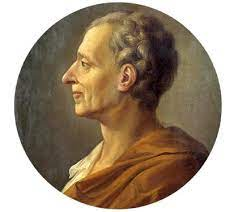"Checks and balances are our only security" — John Adams
[1] Balance of power: domestic and international. In his discussion of Hans Morgenthau's Politics Among Nations, Barry Gewen writes:
Americans should be familiar with the concept of a balance of power because their own domestic institutions were constructed on the basis of checks and balances. The writers of The Federalist Papers had praised the notion of pitting interest to interest. In fact, the idea of a balance of power was 'as old as political history itslef'. In an anarchic world it was 'necessary', an 'essential stabilizing factor' (*).
This rather intuitive idea is seldom expressed in writing. Here's one exception: according to Scott Gordon, Plato almost arrived at "a general theory of checks and balances" based on his quasi-historical analysis of Sparta-Messene-Argos in Laws.III (690.d) (†).
* * *
[2] Perception, reality. I posted on LinkedIn a version of my Checks and Balances Index under the title 'Mack's Country Risk Index'. One colleague expressed reservations regarding the validity of such survey-based indicators. An age-old problem indeed. I'm aware of the biases that plague these surveys. But I end up reminding myself that both Montesquieu and Smith (following his maître à penser) insisted on the importance of perception as the key driver of behaviour. Montesquieu: « La liberté politique est cette tranquillité d’esprit qui provient de l’opinion que chacun a de sa sûreté » (EL, XI, 6). Smith: "But upon the impartial administration of justice depends the liberty of every individual, the sense which he has of his own security." (WN, V,1.2) [see].
(*) Barry Gewen. The Inevitability of Tragedy. Henry Kissinger and his World. New York: Norton, 2020, p. 212.
(†) Scott Gordon. Controlling the State. Constitutionalism from Ancient Athens to Today. Harvard University Press, 1999, p. 82.
___________________

No comments:
Post a Comment